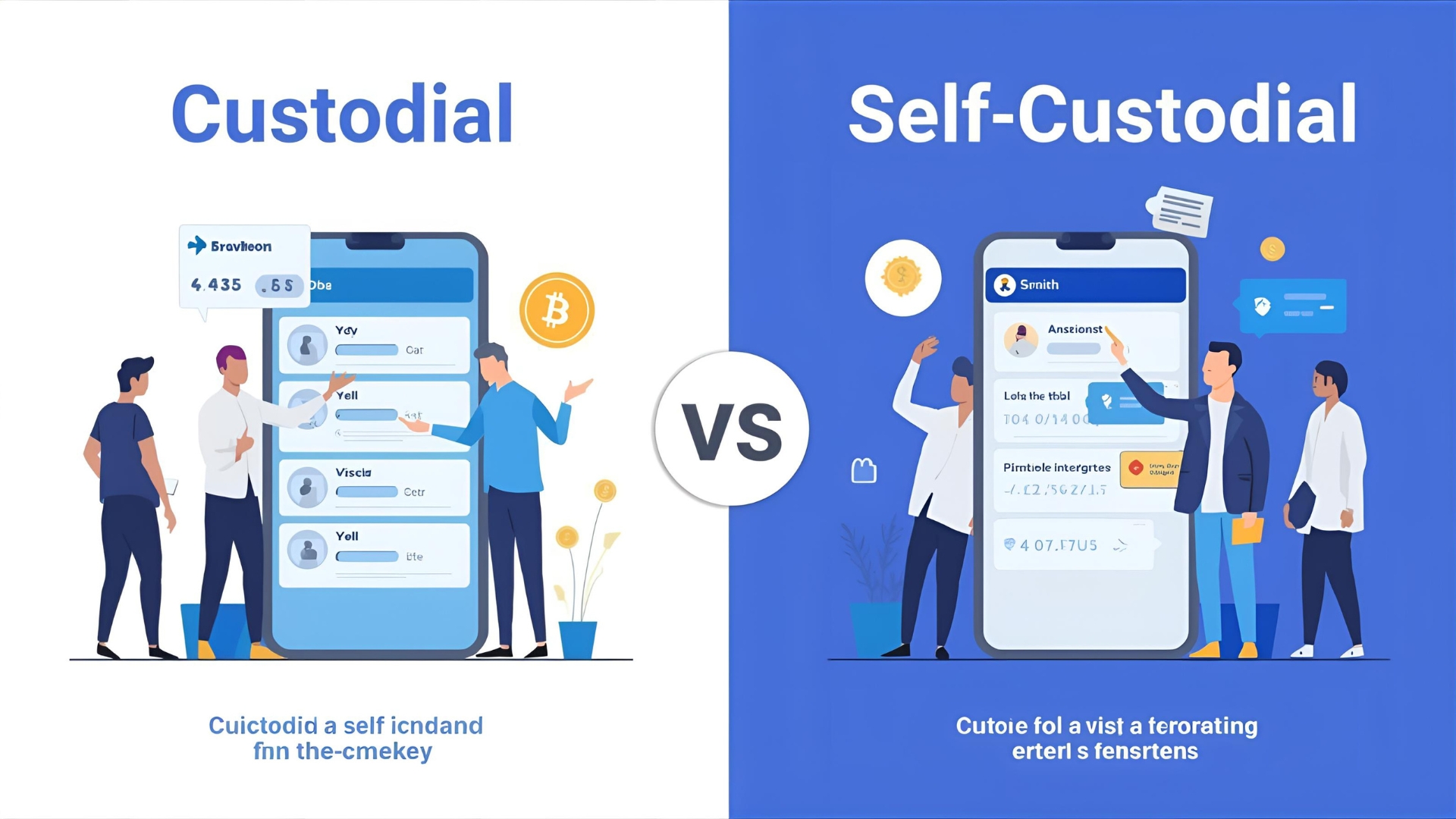In recent weeks, crypto forums and social feeds have pulsed with a startling claim: the United States government “unexpectedly revealed” the private key to $1.5 billion worth of bitcoins. The idea is electrifying—and terrifying. A Bitcoin private key is the cryptographic secret that proves control over coins at a particular address. If that secret is exposed, the coins can be moved by whoever has it. So if the U.S. government really did reveal a key to a wallet holding $1.5 billion in BTC, it would constitute one of the most consequential events in digital asset history.
Here’s the reality check. No credible, verifiable evidence shows that the U.S. publicly disclosed a private key controlling $1.5 billion in Bitcoin. There are, however, adjacent facts that have been misunderstood or exaggerated. U.S. agencies have seized crypto by obtaining access to private keys in specific investigations, and a federal court has compelled a convicted tax fraud defendant to surrender his private keys—but those instances are neither “unexpected” nor anywhere near the $1.5 billion headline figure. They’re lawful, case-specific actions, not a blanket reveal. In this deep dive, we’ll unpack how Bitcoin keys work, what U.S. authorities have actually said or done, where the $1.5 billion number likely came from, and what it all means for wallet security, compliance, and the future of crypto regulation.
The difference between rumors and verifiable facts
Before we explore the details, it helps to set the factual baseline.
-
In 2021, the U.S. Department of Justice (DOJ) announced a recovery of 63.7 BTC (about $2.3 million at the time) from the Colonial Pipeline ransomware payment. The press release explicitly noted that the FBI had the private key for the targeted address—meaning agents gained lawful access through investigative means, not that they published the key to the world.
-
In January 2025, a Texas federal judge ordered early Bitcoin investor Frank Richard Ahlgren III—convicted in a crypto tax fraud case—to hand over his private keys and access codes for wallets associated with roughly $124 million in digital assets. That order compelled disclosure to authorities, not public release—and the amount is far below $1.5 billion.
-
Courts and filings routinely explain, in plain language, that private keys are necessary to move funds and that addresses are trackable on the blockchain. Those documents describe how keys work; they do not publish them.
What about the massive $1.4–$1.5 billion number you may have seen? In early 2025, Dubai-based exchange Bybit disclosed a record-setting hack of roughly $1.4–$1.5 billion in crypto, widely covered by mainstream outlets. That incident did not involve the U.S. government revealing a private key; it was an exchange breach attributed by several analyses to sophisticated attackers.
In short, the “U.S. revealed a $1.5B Bitcoin private key” headline collapses different threads—lawful seizures, a court-ordered key surrender, and a massive exchange hack—into a single, misleading meme.
How Bitcoin private keys actually work
What is a private key?
At the heart of Bitcoin is elliptic curve cryptography (ECC). A private key is a large random number that generates a public key. That public key, in turn, maps to an address. Funds credited to that address can only be moved by signing a transaction with the corresponding private key. Reveal the key, and you reveal control. Lose the key, and you lose access—permanently.

Courts and investigators often explain these basics in affidavits and opinions so judges unfamiliar with crypto can understand the stakes. A DOJ search application, for example, spells it out: “Virtual currency stored at a particular address is accessed using private encryption ‘keys.’ Those private keys are necessary to access the virtual currency… Only the holder of the private key can access or transfer [it].”
Why private key leaks are catastrophic
If a Bitcoin private key becomes public, anyone can sweep the funds. There’s no “reset password” button and no central administrator to roll back a transfer. This finality is part of Bitcoin’s design. It’s why cold storage, hardware wallets, and strict key-management practices are so essential—and why rumors about key exposures spread like wildfire.
What the U.S. has—and hasn’t—done with private keys
Lawful seizures aren’t public reveals
In the Colonial Pipeline case, the DOJ did not post a private key on a website. Investigators tracked the payment flow on the public ledger, then obtained access to a wallet’s key and recovered funds. Public statements acknowledged possession of a specific private key as part of the legal seizure narrative. But “we have the key” is very different from “we published the key.”
Court-ordered key surrenders are targeted and case-specific
The Ahlgren decision is another example of a targeted legal process. A federal court ordered a convicted defendant to surrender keys in aid of judgment and forfeiture—not to broadcast them. This is comparable to compelling someone to turn over a safe’s combination or decrypt a device, subject to constitutional constraints and case law. The order concerned approximately $124 million, not $1.5 billion, and the specifics of that case bind it.
No evidence of a $1.5B U.S. key “reveal”
At the time of writing, there is no credible primary source—no DOJ record, court docket, or agency statement—showing that the U.S. publicly revealed a private key that controls $1.5 billion in Bitcoin. The significant number you might associate with headlines stems from the Bybit breach, which was a criminal hack, not a U.S. disclosure.
Where the $1.5B claim likely came from
Conflating a hack with government action
The Bybit incident created a flurry of posts about “$1.5B in crypto” being taken. Some accounts then mis-tethered that number to unrelated references to the U.S. “having the private key” in past cases, and the rumor rapidly muttered itself into existence. But the Bybit matter is an exchange compromise; it has nothing to do with a U.S. key reveal.
Misreading legal filings that explain what keys are
Legal documents frequently explain Bitcoin’s mechanics for judges and juries. Snippets like “only the holder of the private key can move funds” often circulate without context and get misconstrued as admissions of disclosure. They are just explanations of how crypto works, not confessions of a leak.
Stretching a $124M court order to $1.5B
Finally, the Ahlgren ruling’s $124 million figure sometimes gets inflated through telephone-game retellings. One viral post adds a zero; another round number morphs to $1.5B; an “order to surrender keys” becomes “keys revealed by the U.S.” This is how search-bait claims metastasize.
What would it mean if a $1.5B Bitcoin private key were truly revealed
Immediate on-chain consequences
If the private key to a wallet holding $1.5 billion in Bitcoin were publicly exposed, the coins would likely move almost instantly. Competing bots would race to sweep the address, fee markets would spike, and blockchain watchers would link the event to the leaked key in near real-time. On-chain forensics firms would publish granular traces within hours.
Market and policy reaction
A genuine key reveal of that size would jolt markets. Exchanges might temporarily suspend BTC deposits from the tainted address cluster, policymakers would face pointed questions about security and custody (particularly if a state actor were implicated), and litigants would sprint to courts to freeze proceeds. None of these telltale signs has appeared because the event hasn’t happened.
Custodial vs. self-custodial differences

Such a disaster would also reignite debate over custodial holdings versus self-custody. In custodial setups, operational key security becomes a single point of failure; if a custodian’s key material leaks, many users are affected. In self-custody, the risk is individualized but absolute: your keys, your coins—your responsibility.
See More: Bitcoin To Hold $110,000 Through September Crypto Analysis
What U.S. actions here actually signal about policy
Seizures and key surrenders reflect maturing enforcement, not anti-crypto bias
The U.S. posture is clear: agencies will seize illicit proceeds and courts will compel access when legally justified. That stance doesn’t “break” Bitcoin cryptography; it uses traditional legal tools to reach assets where due process allows. The Colonial Pipeline recovery and Ahlgren order exemplify this trajectory toward standardization rather than a crusade against crypto.
It’s crucial to distinguish possession from publication. When the FBI states it has a private key to an address under investigation, that’s not a broadcast. It is a statement that agents obtained the secret and used it to seize ill-gotten gains, closer to discovering a vault key during a search than printing the combination in a newspaper.
Legal descriptions are not leaks
Court filings that describe Bitcoin private keys, wallets, addresses, and how OP_RETURN or on-chain tracing works are explanatory. They are teaching tools for judges and juries, not inadvertent leaks of live keys.
How to interpret and verify headlines like this
Look for primary sources
If a claim is explosive, there should be a primary document: a docket entry, a government press release, or an affidavit. Without it, assume the story is fragmentary or false. The DOJ Colonial Pipeline release and later court documents are good examples of primary sources with specific facts, numbers, and case names.
Separate a number from its narrative
The $1.4–$1.5 billion number is real—in the Bybit context. But it’s a figure from a private-sector breach, not a U.S. key reveal. Always ask: Which event does this number belong to? Which entity (government, exchange, private firm) is involved?
Watch for language drift
“U.S. obtained a private key (under seal)” can easily morph online into “U.S. revealed a private key (to everyone).” Precision matters.
What should crypto users do now?
Practice uncompromising key hygiene.
Use hardware wallets, offline seed phrase storage, multisig where appropriate, and Shamir backups or split custody if you have meaningful balances. These practices mitigate single-point failures and make your Bitcoin holdings resilient to device loss and some physical threats. Authoritative, evergreen guidance from security vendors and experts reiterates that the real risks are weak randomness, poor storage, and human error, not impossible brute-force attacks.
Understand legal exposure
If you’re subject to investigation, courts may compel access, similar to orders to unlock safes or decrypt devices (subject to jurisdictional law and constitutional protections). That reality underscores the importance of compliance, clean provenance, and proper record-keeping for tax and AML obligations. The Ahlgren case is a cautionary tale.
Follow credible sources, ignore outrage bait
Prioritize official statements, reputable reporting, and recognized blockchain-analysis firms. Be skeptical of posts that mash together unrelated facts, inflate numbers, or lack citations.
Final Thoughts
Despite viral claims, there is no credible evidence that the U.S. unexpectedly revealed a private key to $1.5 billion in Bitcoin. What we do have is a clear record of targeted law-enforcement actions—recovering ransomware proceeds after obtaining a specific wallet’s private key, and compelling a convicted tax cheat to surrender access credentials to a nine-figure stash. Those are not mass disclosures; they’re case-by-case applications of ordinary legal tools to an extraordinary technology. Meanwhile, the $1.5 billion figure belongs to the Bybit exchange hack—an unrelated episode of operational failure, not a government leak.
Conclusion: The myth of a U.S.-revealed $1.5B Bitcoin private key crumbles under scrutiny. Keys have been obtained under lawful process and used for seizures; a separate exchange incident reached the billion-dollar scale. For investors, builders, and observers, the real lessons are timeless: protect your keys with rigor, understand your legal obligations, and don’t let sensational headlines cloud sober, Bitcoin-literate judgment.
FAQs
Q: Did the U.S. ever publish a Bitcoin private key to the public?
No. In notable cases, such as the Colonial Pipeline recovery, the FBI stated it had a specific private key to seize funds, but it did not publish that key. That’s a targeted seizure, not a public reveal.
Q: Where did the $1.5 billion number come from?
From a different event: the Bybit exchange breach in early 2025. Multiple outlets reported losses of around $1.4–$1.5 billion. That incident has nothing to do with U.S. authorities revealing any private key.
Q: Can a court force someone to hand over crypto keys?
Yes, in some instances. In January 2025, a Texas federal court ordered Frank Richard Ahlgren III to surrender private keys and access codes tied to around $124 million in crypto following a criminal tax conviction.
Q: If a private key gets leaked, can I get my Bitcoin back?
Usually not. Bitcoin transactions are irreversible, and control flows to whoever holds the key. Some funds can be frozen at exchanges or traced after the fact, but on-chain reversals aren’t possible. This is why hardware wallets, multisig, and disciplined seed phrase management are essential.
Q: How can I tell if a crypto headline is reliable?
Look for primary sources (court filings, agency press releases), consistent numbers, and reputable outlets. Be wary of posts that conflate separate incidents or lack citations—especially when they involve sensational sums or claims about private key “reveals.”

